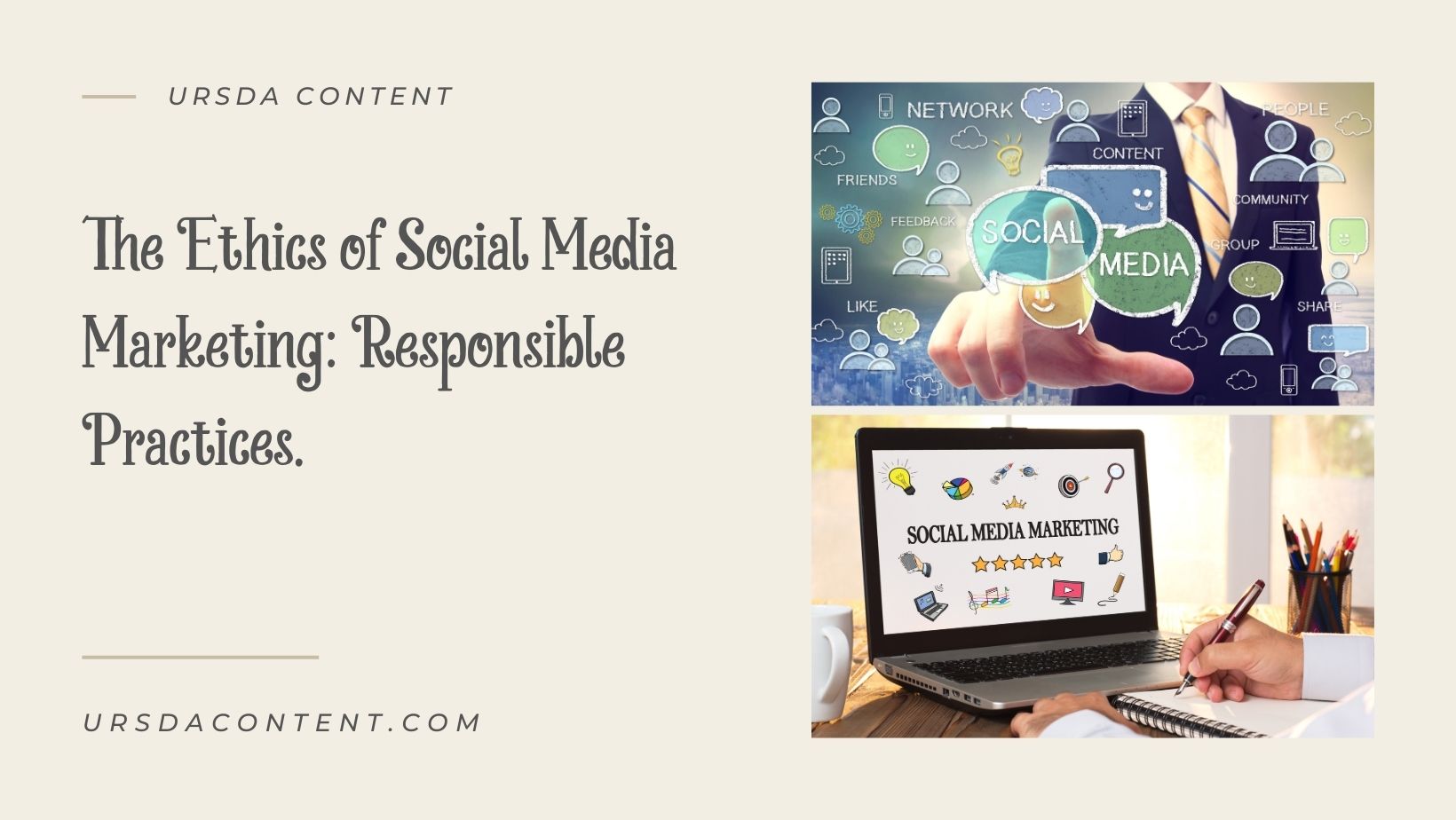
The Ethics of Social Media Marketing, Responsible Practices
In recent years, social media marketing has become increasingly relevant and necessary in building a strong brand presence. However, as with any platform that can be used to engage with the public, it also means that conflicts and potential ethical issues may arise. In this blog post, we will discuss the concept of ethical marketing, and outline some crucial considerations for brands to maintain high ethical standards in their social media practices.
Ethical marketing is a philosophy that focuses on promoting fairness, honesty, and responsibility in marketing practices. For social media marketing, this means ensuring that brands maintain transparency, adhere to privacy guidelines, and ethically engage with followers and critics. Ultimately, adopting ethical marketing practices helps to build a solid reputation and foster trust between the brand and its target audience.
As social media continues to play a significant role in the decision-making process among consumers, ensuring that brands maintain ethical practices is essential. The brand's reputation is on the line, and unethical actions can result in a loss of credibility, damaged relationships, and even legal ramifications.
The following are some key ethical considerations that brands should be aware of when engaging in social media marketing.
1. Honesty and Transparency
One of the core tenets of ethical marketing is to remain honest and transparent in all communication with the audience. This means:
- Disclose your affiliations. Whether sponsoring a post, partnering with influencers, or having a celebrity endorsement, it is crucial to disclose any financial or promotional relationships the brand may have.
- Be clear about the purpose of your content. Content that may be interpreted as misleading or clickbait should be avoided. Instead, focus on delivering value to your followers.
- Own up to and correct mistakes. When errors occur, be transparent, apologize, and correct the misinformation promptly.
- Don't misrepresent your product or service. Be honest about the benefits and drawbacks of your offerings.
2. Privacy and Data Management
Respecting the privacy of your followers and customers is a fundamental aspect of ethical social media marketing. This involves:
- Obtaining consent for data collection. Be transparent with your audience about the data you collect and obtain permission where required.
- Protecting collected data. Implement stringent security measures to ensure that personal data is safeguarded against unauthorized access or data breaches.
- Complying with data protection regulations, such as GDPR. Ensure your brand follows the legal guidelines and frameworks outlined in your region.
3. Inclusivity and Diversity
Promoting inclusivity and diversity is essential for ethical social media marketing. To create an inclusive online community:
- Avoid stereotypes and offensive content. Be mindful of the language and visuals used in your content. Engage in cultural sensitivity training if necessary.
- Encourage diverse voices. Highlight stories, experiences, and perspectives of people from different backgrounds, races, and genders.
- Develop diverse content. Adapt your content to cater to your diverse audience's preferences and interests.
4. Fair Competition
Adopting ethical practices also means respecting fair competition within your industry. Some ways to ensure this are:
- Avoid negative campaigns against competitors. Focus on promoting the positive aspects of your brand, rather than attacking others.
- Respect intellectual property rights. Do not plagiarize or use copyrighted content without proper permission or citation.
- Stay informed about industry regulations. Ensure your social media marketing campaigns meet the ethical standards set forth by regulatory bodies.
5. Engagement and Responsibility
Building a responsible brand presence on social media requires ongoing engagement with your audience. Consider the following practices:
- Respond to comments, both positive and negative. Engaging with your audience shows that you value their opinions and feedback.
- Address conflicts and criticism. Ignoring issues or deleting negative comments can lead to a loss of credibility. Instead, address these concerns professionally and candidly.
- Practice corporate social responsibility (CSR). Align your brand with causes that are in line with your values, and actively contribute to social impact initiatives. Share these efforts with your followers to inspire positive change.
The journey toward becoming an ethical brand does not happen overnight. It requires an ongoing commitment to refining and adapting your social media practices. Here are some steps to help you implement an ethical social media marketing strategy:
- Create a Social Media Policy: Develop guidelines that detail the ethical principles and practices your brand will adhere to on social media. This policy should be communicated clearly to your marketing team and any third parties involved, such as influencers and contractors.
- Educate and Train Your Team: The importance of ethical marketing should be emphasized within your organization. Provide training and resources to ensure your team is equipped to adhere to these ethical guidelines.
- Regularly Monitor Your Social Media Platforms: Stay actively involved in monitoring your brand's social media presence. Watch out for potential ethical concerns or violations, and address them promptly.
- Seek Feedback: Encourage your audience to share their feedback and voice any concerns. Allowing for open communication can help identify areas where your brand's ethical practices may need improvement.
- Learn and Adapt: Continuously learn from your experiences, and be prepared to evolve your social media strategy to ensure that your brand maintains its ethical standards.
As the digital landscape continues to evolve, successful brands must adapt their strategies to foster trust and loyalty with their audience. By prioritizing ethical social media marketing, organizations can not only enhance their credibility but also play a positive role in shaping an increasingly responsible and transparent online environment.
